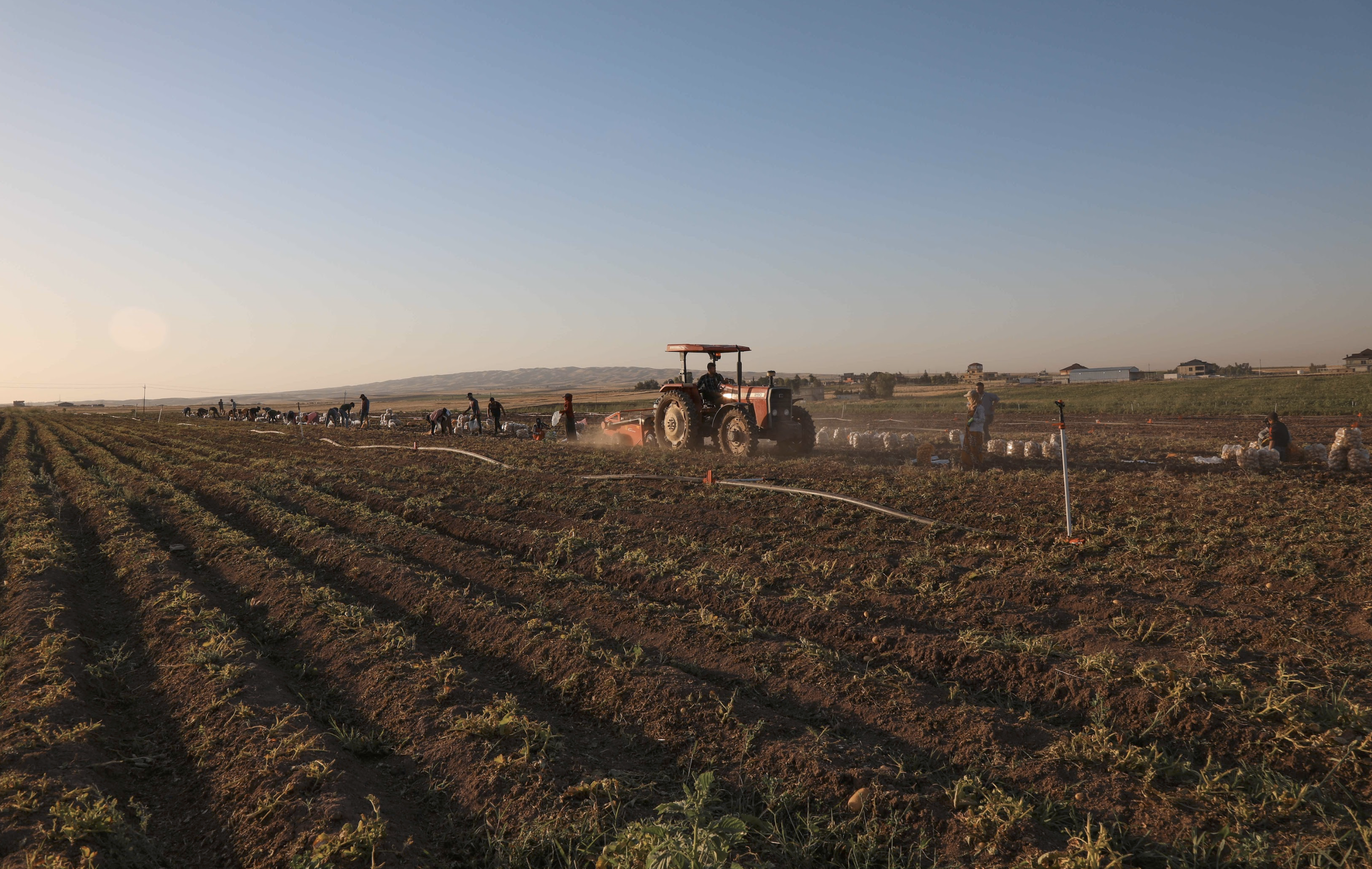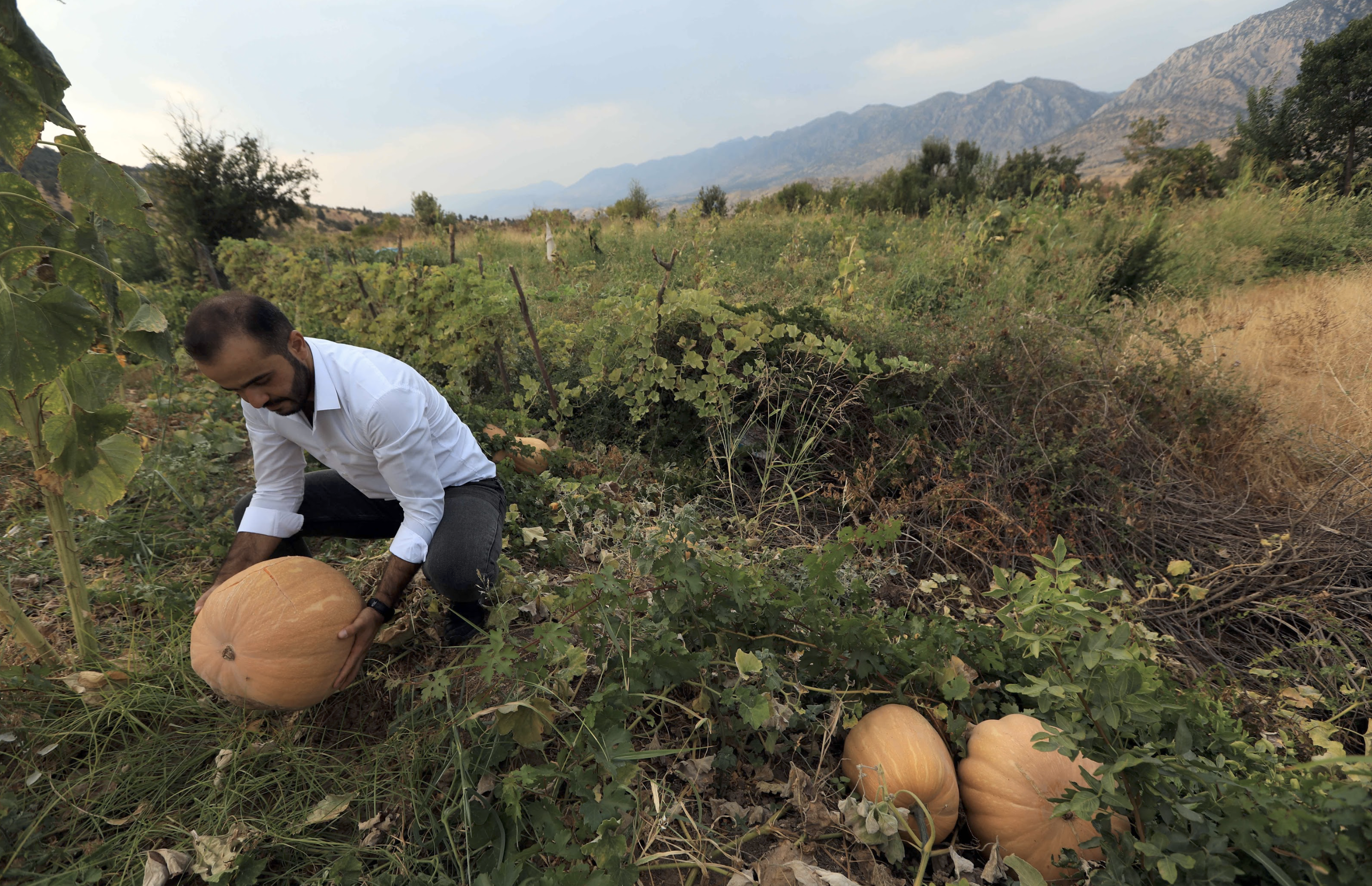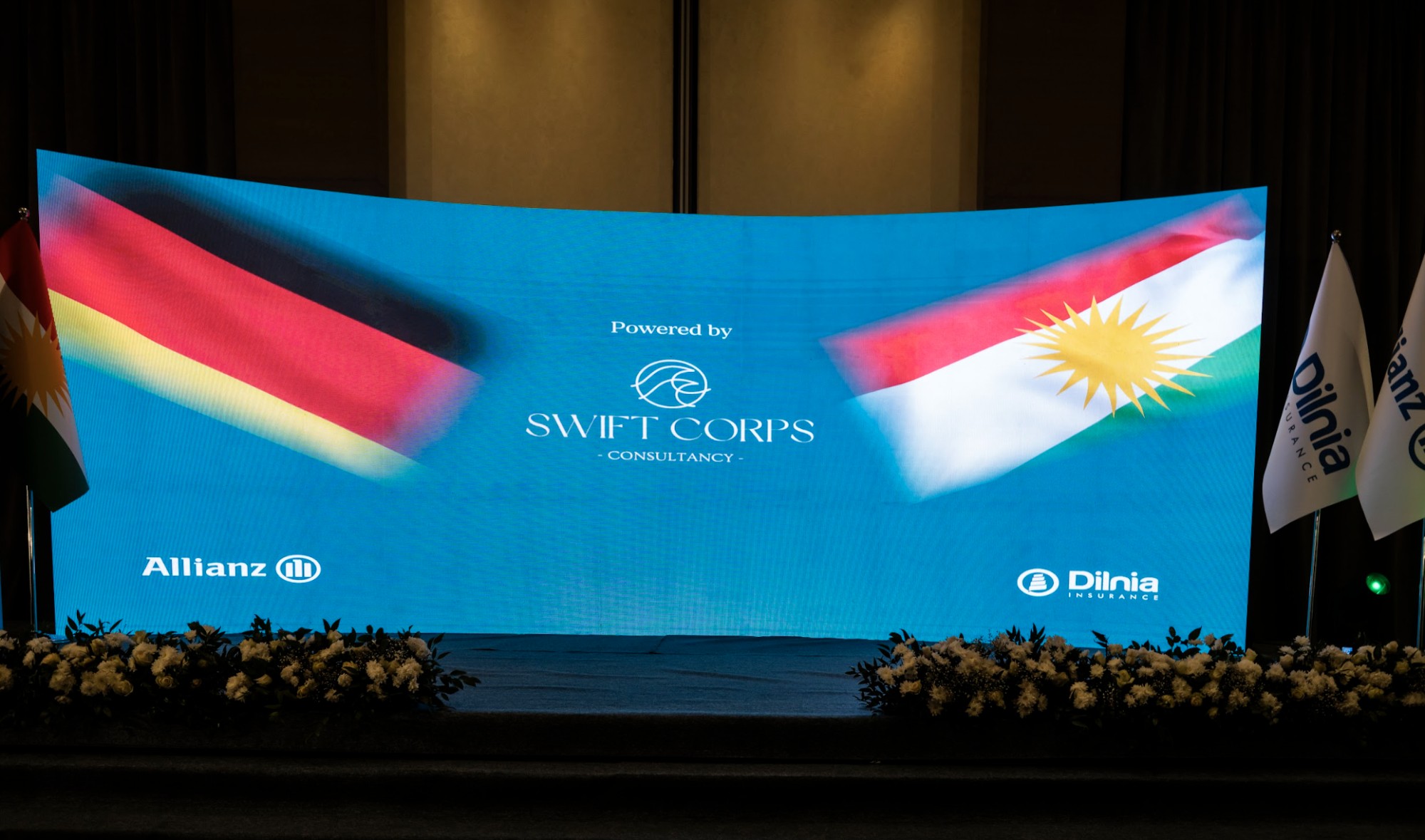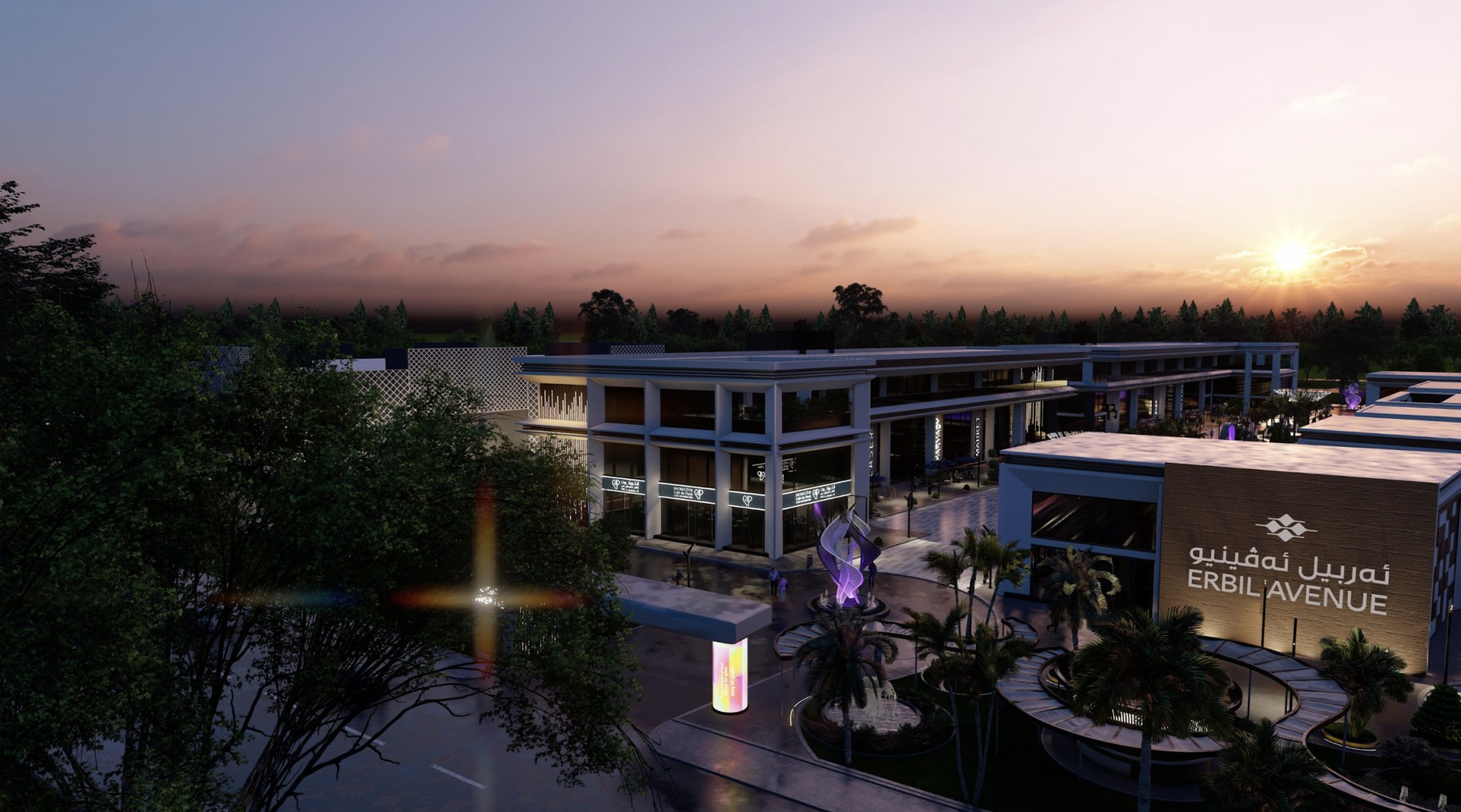The history of the development of agriculture spans thousands of years. It varies greatly depending on geographical location, technological advancements, cultural practices, and environmental factors.
The transition from hunting and gathering to agriculture marked a significant milestone in human history. This shift occurred independently in regions around the world between 10,000 and 4,000 BC, depending on factors such as the availability of suitable plant and animal species for domestication.
Early agriculturalists began selectively breeding wild plants and animals to enhance desirable traits, such as larger seeds, increased yield, or docility. This process led to the domestication of crops like wheat, barley, rice, and maize and animals such as cattle, sheep, goats, and pigs.
The first signs of agriculture in what is now the Kurdistan Region were observed at the Charmo site, which dates to 7,500 BC. Today, the agricultural sector plays an essential role in the economy of rural areas.

In the mid-20th century, advancements in plant breeding, agrochemicals, and irrigation technologies led to the Green Revolution, which dramatically increased agricultural productivity and helped alleviate hunger in many parts of the world. High-yielding crop varieties, such as wheat and rice, and synthetic fertilizers and pesticides became widely adopted.
Developing the agricultural industry in the Kurdistan Region requires a comprehensive approach that addresses the various challenges facing farmers and agriculture in a way that complements the region’s resources and potential. Below are some strategies that the government can consider to protect and revive agriculture in the region:
Investment in infrastructure: Improving infrastructure such as roads, irrigation systems, storage facilities, and market access is essential for supporting agricultural development. This development includes upgrading rural roads to facilitate the transportation of goods, modernizing irrigation systems to increase water efficiency, and establishing cold storage facilities to reduce post-harvest losses. Promotion of modern farming practices: Encouraging the adoption of modern farming techniques and technologies can boost productivity and efficiency in agriculture. This promotion may involve providing training, extension services, and access to inputs such as high-quality seeds, fertilizers, and pesticides. Demonstrations of best practices and pilot projects can help showcase the benefits of modern methods to farmers. Diversification of crops and livestock: Promoting crop diversification and the development of high-value crops can enhance resilience to climate change and market fluctuations. Additionally, supporting the growth of livestock production through improved breeding, animal healthcare, and feed management can contribute to food security and economic growth. Support for smallholder farmers: Smallholder farmers constitute a significant portion of the agricultural sector in many regions, including the Kurdistan Region. Providing them with access to credit, insurance, and marketing support can help improve their livelihoods and productivity. Initiatives such as farmer cooperatives and producer organizations can also facilitate collective action and bargaining power. The government should also ban the import of agricultural and animal products to allow the sales of local production, which will help farmers increase their production in the future. Sustainable land management: Sustainable land management practices, such as conservation agriculture, agroforestry, and soil conservation measures, can help mitigate soil erosion, degradation, and desertification. These practices contribute to long-term soil health and productivity while preserving natural resources for future generations. Market development and value-chain integration: Strengthening market linkages and value chains is crucial for connecting farmers to markets and improving their access to inputs, information, and credit. This information may involve establishing market infrastructure, promoting agro-processing industries, and fostering partnerships between farmers, traders, processors, and retailers. Policy and regulatory reforms: An enabling policy environment supports agricultural development. This development includes policies that promote investment, land tenure security, agricultural research and innovation, and market liberalization. Regulatory reforms to streamline procedures, reduce bureaucracy, and ensure food safety and quality standards can also facilitate growth in the sector. Climate resilience and adaptation: Given the vulnerability of agriculture to climate change, integrating climate resilience and adaptation strategies into agricultural planning and development is crucial. This planning may involve promoting drought-resistant crops, water-saving technologies, and climate-smart agricultural practices that enhance resilience to extreme weather events and variability in precipitation patterns. Supporting the regional government: Providing banking facilities to farmers to develop their businesses with long-term, low-interest loans, distributing agricultural lands to graduates of agricultural colleges and institutes, and encouraging them to invest in their fields of specialization can help bolster the sector. The government must work seriously to preserve agricultural lands because, in previous years, agricultural lands were allocated to residential projects, which harm the agricultural economy and threaten food security.
By implementing these strategies in a coordinated and collaborative manner, the Kurdistan Region can unlock the full potential of its agricultural sector, contribute to food security, economic growth, and rural development, and improve the livelihoods of its farming communities.
Overall, the development of the agricultural industry has been a complex and ongoing process shaped by human ingenuity, cultural practices, and environmental factors, with each stage building upon the innovations and knowledge of previous generations.
Saman Shali is a political analyst, has been passionately involved in advocating for Kurdish rights since the mid-1970s.

